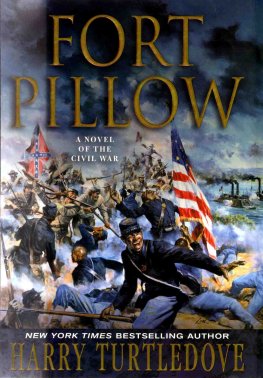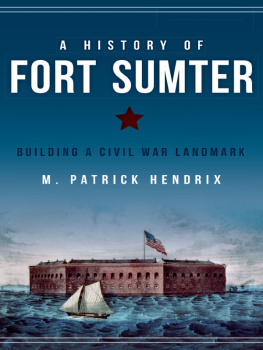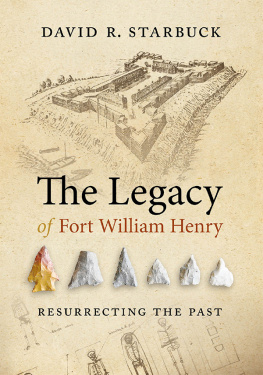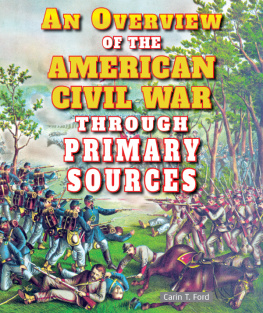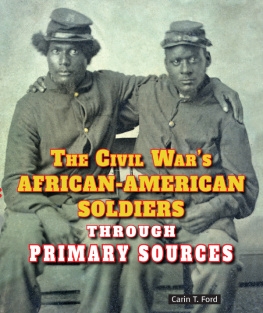The Fort Pillow Massacre
On April 12, 1864, a small Union force occupying Fort Pillow, Tennessee, a fortress located on the Mississippi River just north of Memphis, was overwhelmed by a larger Confederate force under the command of Major General Nathan Bedford Forrest. While the battle was insignificant from a strategic standpoint, the indiscriminate massacre of Union soldiers, particularly African-American soldiers, made the Fort Pillow Massacre one of the most gruesome slaughters of the American Civil War, rivaling other instances of Civil War brutality.
The Fort Pillow Massacre outlines the events of the massacre while placing them within the racial and social context of the Civil War. Bruce Tap combines a succinct history with a selection of primary documents, including government reports, eyewitness testimony, and newspaper articles, to introduce the topic to undergraduates.
Bruce Tap is an independent scholar and the author of Over Lincoln's Shoulder: The Committee on the Conduct of War.
Critical Moments in American History
Edited by William Thomas Allison, Georgia Southern University
The Assassination of John F. Kennedy
Political Trauma and American Memory
Alice L. George
The Battle of the Greasy Grass/Little Bighorn
Custer's Last Stand in Memory, History, and Popular Culture
Debra Buchholtz
Freedom to Serve
Truman, Civil Rights, and Executive Order 9981
Jon E. Taylor
The Battles of Kings Mountain and Cowpens
The American Revolution in the Southern Backcountry
Melissa Walker
The Cuban Missile Crisis
The Threshold of Nuclear War
Alice L. George
The Nativist Movement in America
Religious Conflict in the 19th Century
Katie Oxx
The 1980 Presidential Election
Ronald Reagan and the Shaping of the American Conservative Movement
Jeffrey D. Howison
The Fort Pillow Massacre
North, South, and the Status of African-Americans in the Civil War Era
Bruce Tap
The Fort Pillow Massacre
North, South, and the Status of African-Americans in the Civil War Era
Bruce Tap
First published 2014
by Routledge
711 Third Avenue, New York, NY 10017
and by Routledge
2 Park Square, Milton Park, Abingdon, Oxon OX14 4RN
Routledge is an imprint of the Taylor & Francis Group, an informa business
2014 Taylor & Francis
The right of Bruce Tap to be identified as author of this work has been asserted by him in accordance with sections 77 and 78 of the Copyright, Designs and Patents Act 1988.
All rights reserved. No part of this book may be reprinted or reproduced or utilized in any form or by any electronic, mechanical, or other means, now known or hereafter invented, including photocopying and recording, or in any information storage or retrieval system, without permission in writing from the publishers.
Trademark notice: Product or corporate names may be trademarks or registered trademarks, and are used only for identification and explanation without intent to infringe.
Library of Congress Cataloging in Publication Data
Tap, Bruce.
The Fort Pillow massacre: north, south, and the status of African-Americans in the Civil War era/Bruce Tap.
pages cm. (Critical moments in American history)
Includes bibliographical references and index.
1. Fort Pillow, Battle of, Tenn., 1864. 2. United StatesHistoryCivil War, 18611865African Americans. I. Title.
E476.17.T37 2013
973.7415dc23
2013013170
ISBN: 978-0-415-80863-7 (hbk)
ISBN: 978-0-415-80864-4 (pbk)
ISBN: 978-0-203-08146-4 (ebk)
Typeset in Bembo and Helvetica Neue
by Florence Production Ltd, Stoodleigh, Devon, UK
Contents
Welcome to the Routledge Critical Moments in American History series. The purpose of this new series is to give students a window into the historian's craft through concise, readable books by leading scholars, who bring together the best scholarship and engaging primary sources to explore a critical moment in the American past. In discovering the principal points of the story in these books, gaining a sense of historiography, following a fresh trail of primary documents, and exploring suggested readings, students can then set out on their own journey, to debate the ideas presented, interpret primary sources, and reach their own conclusionsjust like the historian.
A critical moment in history can be a range of thingsa pivotal year, the pinnacle of a movement or trend, or an important event such as the passage of a piece of legislation, an election, a court decision, a battle. It can be social, cultural, political, or economic. It can be heroic or tragic. Whatever they are, such moments are by definition game changers,momentous changes in the pattern of the American fabric, paradigm shifts in the American experience. Many of the critical moments explored in this series are familiar; some less so.
There is no ultimate list of critical moments in American history any group of students, historians, or other scholars may come up with a different catalog of topics. These differences of view, however, are what make history itself and the study of history so important and so fascinating. Therein can be found the utility of historical inquiryto explore, to challenge, to understand, and to realize the legacy of the past through its influence of the present. It is the hope of this series to help students realize this intrinsic value of our past and of studying our past.
William Thomas Allison
Georgia Southern University
| April 12, 1861 | Confederate bombardment of Fort Sumter. |
| May 23, 1861 | General Benjamin F. Butler, Union commander at Fortress Monroe, Virginia, refuses to return three escaped slaves to rebel masters, thus inaugurating the contrabandpolicy. |
| July 21, 1861 | The 1st battle of Bull Run. |
| July 22 and July 25, 1861 | Congress passes the Crittenden-Johnson Resolution, stating the North fought with no intention of overturning the institution of slavery. |
| August 6, 1861 | Passage of the 1st Confiscation Act, allowing the confiscation of any slave directly assisting the Confederate war effort. |
| August 30, 1861 | John C. Fremont issues a decree of Emancipation and Martial Law, freeing the slaves of all enemy slaves in the Department of the West. |
| October 14, 1861 | War Secretary Simon Cameron allows Department of the South commander, Brigadier General Thomas W. Sherman to recruit fugitive slaves as soldiers. |
| March 13, 1862 | Congress adopts new articles of war forbidding Union officers from returning fugitive slaves. |
| April 10, 1862 | Congress passed Lincoln's requested resolution offering compensation for any slave state in the Union that would abolish slavery. |
| April 16, 1862 | Congress passes a plan to abolish slavery in the Washington, D.C., offering $300 compensation to slave owners. |
| May 9, 1862 | Major General David Hunter, commander of the Department of the South, issues an Emancipation Proclamation abolishing slavery in South Carolina, Georgia, and Florida. Hunter's decree was countermanded by President Lincoln on May 22. |


